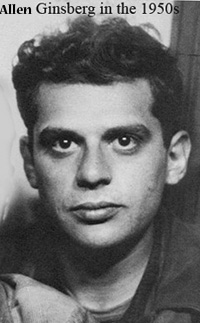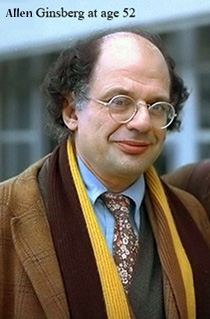Limits of Logic
Today, the limits of logic. The University of Houston's College of Engineering presents this series about the machines that make our civilization run, and the people whose ingenuity created them.
I ran a seminar in our group of enlisted men during my time in the Army, back in 1954. Experts from our unit, and from the Signal Corp Engineering Labs, spoke on all sorts of topics. One talk left its mark on me. It was about Gödel's proof that we can never construct a universal system of axioms that's consistent, coherent, and complete.
Geometry is one such system. So is thermodynamics. Both rest on sets of axioms. Both are ultimately imperfect. I suppose the wider implication is that, if we hope to rule ourselves with pure Spockian logic, we are doomed.
 Two years later, I was doing a one-year instructorship at the University of Washington and hanging out with other young university people. One evening, some poetry students held an ad hoc party. They had a friend from the Bay Area in town, a young poet who'd just finished a long poem that was making a big splash. The poem was Howl; the poet Allen Ginsberg -- soon-to-become-famous.
Two years later, I was doing a one-year instructorship at the University of Washington and hanging out with other young university people. One evening, some poetry students held an ad hoc party. They had a friend from the Bay Area in town, a young poet who'd just finished a long poem that was making a big splash. The poem was Howl; the poet Allen Ginsberg -- soon-to-become-famous.
Enter now, a fellow from that Seattle group -- a physics student named Greg. I don't know what became of him. But (Gödel not withstanding) he was trying to build an axiomatic system that was not just complete, coherent, and consistent. It would be self-necessitatingas well. Self-necessitating? "Greg," I said, "to pull that off, you have to be God." Greg smiled, obviously pleased with that notion.
And so that evening Greg, Allen Ginsberg, and I fell into a long, very odd, conversation. Greg circled and jabbed -- trying to box Ginsberg into confessing his own illogic. Ginsberg parried by rolling marbles out on the fencing room floor -- systematically derailing Greg's determined logic.
No great insights came out of the conversation itself. But years later, I ran into a curious short poem that Ginsberg had penned as he'd ridden the bus up to Seattle from California. He looked up at the luggage racks and wrote,
The racks were created to hang our possessions,to keep us together,
a temporary shift in space.
God's only way of building the rickety structure of Time.
 So I clamber back over time's rickety structure, wishing I could replay that evening knowing what I now do. Ginsberg had also written in Howlabout being obsessed
So I clamber back over time's rickety structure, wishing I could replay that evening knowing what I now do. Ginsberg had also written in Howlabout being obsessed
with a sudden flash of the alchemy of the use
of the ellipse the catalog the meter & the vibrating plane,
who dreamt and made incarnate gaps in Time & Space
He was clearly struck with our sense-limited view of a terribly complex universe. He didn't need Gödel to tell him that a small dose of hubris can turn the useful tool of logic into nonsense.
What I think happened in that Other Time was that Greg looked for a world ruled by logic, and forgot about objectivity. Ginsberg offered a poet's objectivity without the machinery of logic. It's hardly a surprise that Ginsberg is the one who prevailed.
I'm John Lienhard at the University of Houston, where we're interested in the way inventive minds work.
For more on Ginsberg in this context, see: J. H. Lienhard, Inventing Modern: Growing up with X-Rays, Skyscrapers, and Tailfins. (Oxford University Press, 2003): Chapter 15.
A. Ginsberg, Collected Poems: 1947-1980. (New York: Harper & Row, Publishers, 1984). The bus rack snippet is on pg. 154.
For more on Kurt Gödel, see Episode 1899.
Images courtesy of Wikipedia Commons.